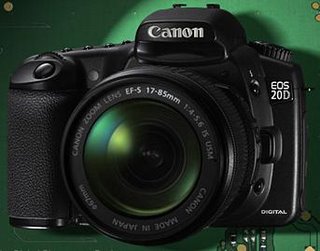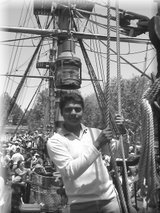 Very often have friends asked me (I am supposed to be a gizmo wizard. I do not subscribe to that name though :-) ) on which is the best camera or camcorder to buy. I would always say.. "Hmmm ... that depends." If this non-committal answer does not drive them away (well some of my friends are thick skinned you know!!) they post the next "tricky" question "What do you mean?". That is where I realize "Oh no.. I need to burn some KCals to explain how to buy a camera!!". To tell you frankly I have felt good when someone trusts me to help them make a decision.
Very often have friends asked me (I am supposed to be a gizmo wizard. I do not subscribe to that name though :-) ) on which is the best camera or camcorder to buy. I would always say.. "Hmmm ... that depends." If this non-committal answer does not drive them away (well some of my friends are thick skinned you know!!) they post the next "tricky" question "What do you mean?". That is where I realize "Oh no.. I need to burn some KCals to explain how to buy a camera!!". To tell you frankly I have felt good when someone trusts me to help them make a decision.Now here I try to lend the helping hand to all those staring at your (presumably 15" tube) to make the best possible choice. How do you go about selecting your new "toy". Here are some factors or consider:
1. First and foremost.. what are your requirements?Hmm.. you might be saying "If I knew that why am I here?" Well what I meant by that statement was .. do you know what you want to
extract from the camera. What features are you looking out for. Being an analytic myself, I have always resorted to an analytical way of writing down all requirements and then classifying them as "Must haves" , "Essentials" , "Preferred" and "Good to have". Viola.. I now
know what I want.
Next we take the digital camera apart. No not your new one! We take each and every component and feature of the camera to understand where your money goes and whether you need that feature or not.
2. Resolution a.k.a Mega pixels
Now that is the most striking feature of a digital camera that you look out for. Days are gone when 1 MP and 2 MP ruled the world. Your next door neighbour now sports a sleek 6.0 MP camera round his neck. More the mega pixels better the image quality is. Duh.. . But how
much is enough? The camera makers out there are wooing you with more MPs to offer and you get sucked into their marketing. I would say it would depend on what you are going to do with the pictures that you click. If you plan to blow them up and stick them all around the walls of your room, or you do a lot of editing, cropping then you would need a 5+ MP camera. But all you do is hobby photography and you share the pictures online with your pals and family, then a 3.2 MP should be more than sufficient for you. You can as well invest the extra $s on other features of the camera that would be of more use to you.
3. Zoom
Now that is the next most important feature of a camera that you need to base your decision on. Digital cameras come with two types of zooms : 1) Optical 2) Digital. Having a digital zoom is as good as not having it at all. Digital zoom blows up and extrapolates each pixel of image data into more pixels. Thus the image quality reduces with the usage of digital zoom. Optical zoom is what you should look out for. Almost all cameras now on the shelves of electronic stores come with a 3X optical zoom. That is break even point when it comes to optical zoom. When you are into nature or wild life photography your camera might leave you yearning for more zoom. So go for more. It is always VfM (value for money) to invest on a camera that has good optical zoom.
4. LCD screen size
This is the next most prominent component of your camera albeit not the most important feature. Big is better. Not in this instance. 1.5" LCD is a standard in most of the cameras. Some of the high ends give you 2.5" too. LCD screens are the energy guzzlers of a camera.
Bigger the size, you get less out of your battery. 1.5" is more than sufficient for a hobby photographer.
5. Battery type and life
Now that I made a mention of batteries in the previous point, let me continue with that. Cameras come with both conventional batteries
(that you get off the shelf in any mom n pop store) and proprietary batteries. There are pros and cons for both of them. Since you can always get conventional batteries whether you are in Namibia or in Phoenix, you have that flexibility. You can get rechargeables too. So if you have an power outlet at the places you go, then you have potentially infinite battery power. They are dirt cheap too. Now what is the flip side? Conventional batteries do not run too long on a single charge. So when you are focusing on a elephant deep in the woods of Mudhumalai Sanctuary the batteries might betray you. If juggling around with multiple batteries do not bother you too much then you are good to go. If you are not into nature photography and most of your subjects are around your cozy home, go with conventional batteries.
Proprietary batteries come packed with more meat. Some of them can run for 200 snaps on a single charge with flash being used. That's good enough for you to go out into Leh and shoot for the whole day and then come back to your base camp to charge the battery pack. They are heavy, costly (if you need more batteries or if you need replacements) but they have the never say die attitude.
6. Video recording
Who needs a video recording feature on a digital camera? What are camcorders there for? Rightly said. No matter how good your camera is, its video can never match the quality of a camcorder. Money spent for this feature is not wisely spent.
7. Manual adjustments, shooting modes etc
Every camera comes with some preset shooting modes and adjustments. Now if you need just more than that. You want to play, experiment with different settings. If you want more control on the outcome of your shoot then look out for a camera that offers you the flexibility to adjust the settings.
8. Form factor
If you wear tight jeans and you want your camera to slide through the front pocket and remain inconspicuous till you pull it out, then you know what you want. But sleekies though they look cute and stylish have some cons too. They are pricier, they tend to have lesser optical zoom and lesser manual adjustments. Its a trade off. Decision is yours.
I think I have covered most of the features and I hope I have helped you to decide to make a purchase.
Here are some resources on the web that give you good reviews, comparisons and price quotes.
1. www.dpreview.com
2. www.techbargains.com
3. www.epinions.com
4. www.circuitcity.com
5. www.bestbuy.com
